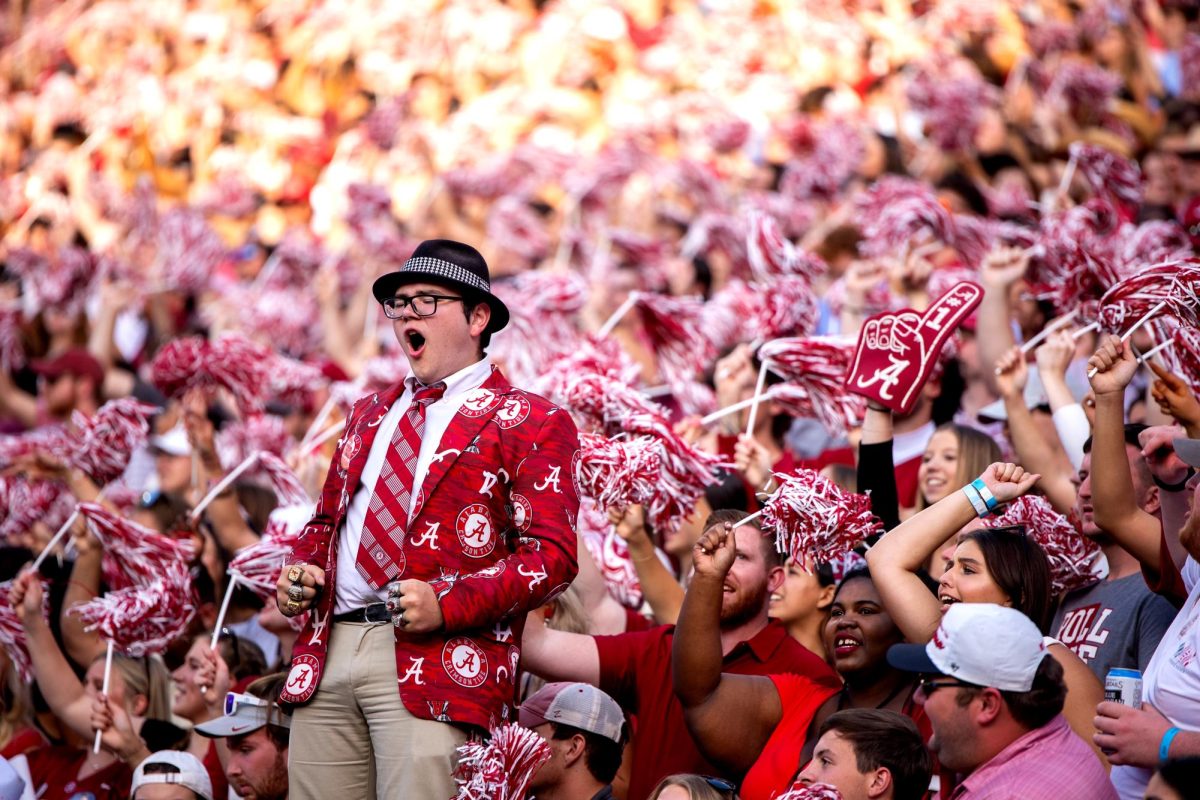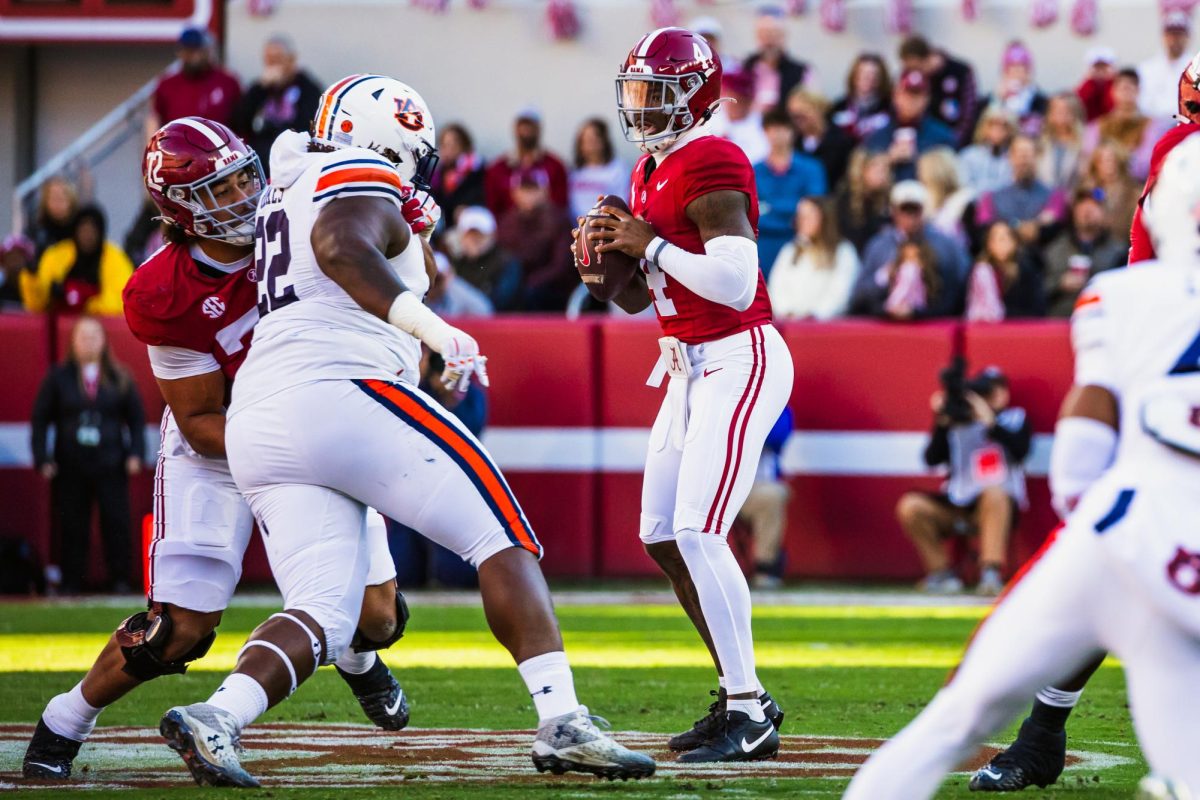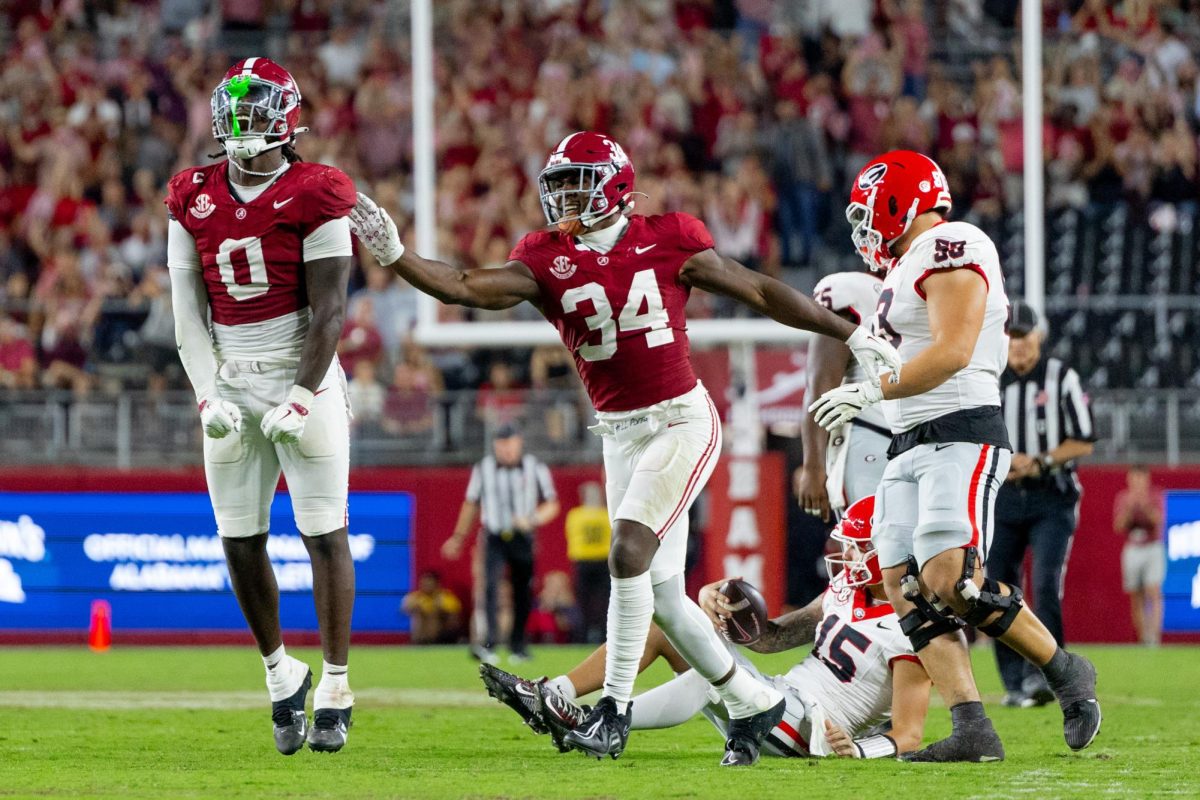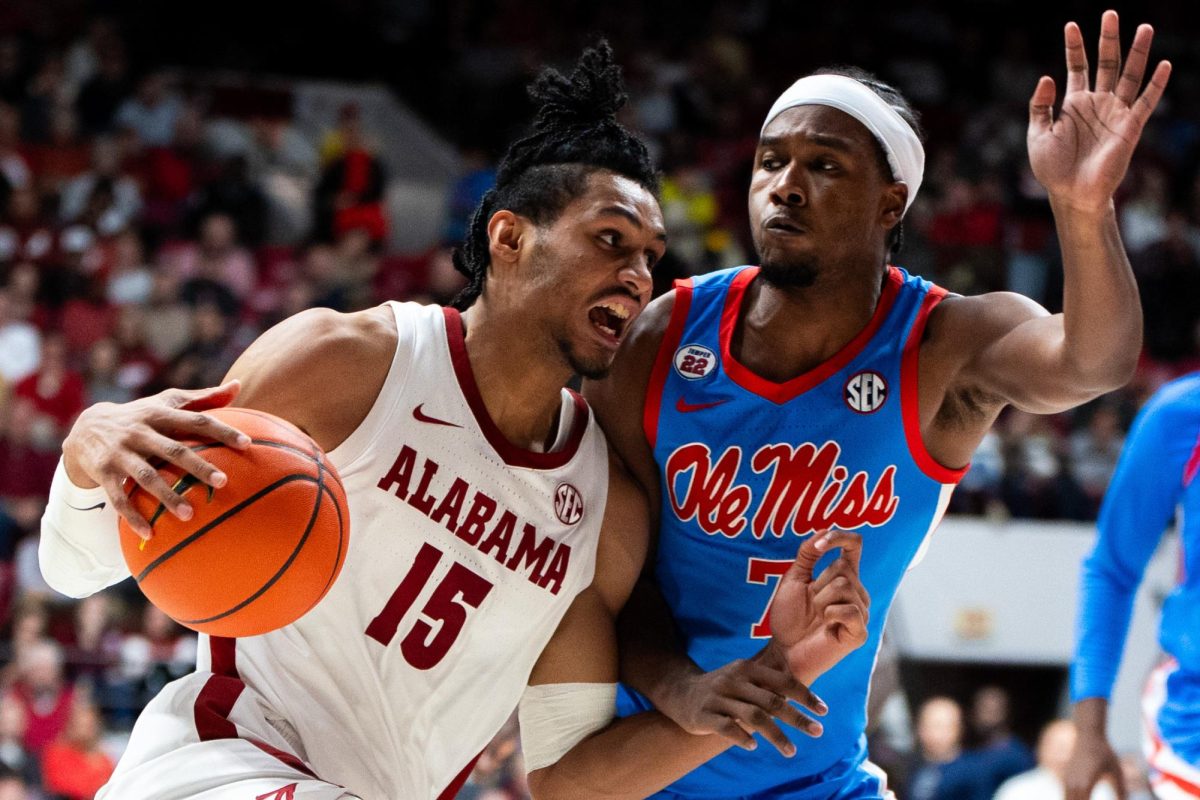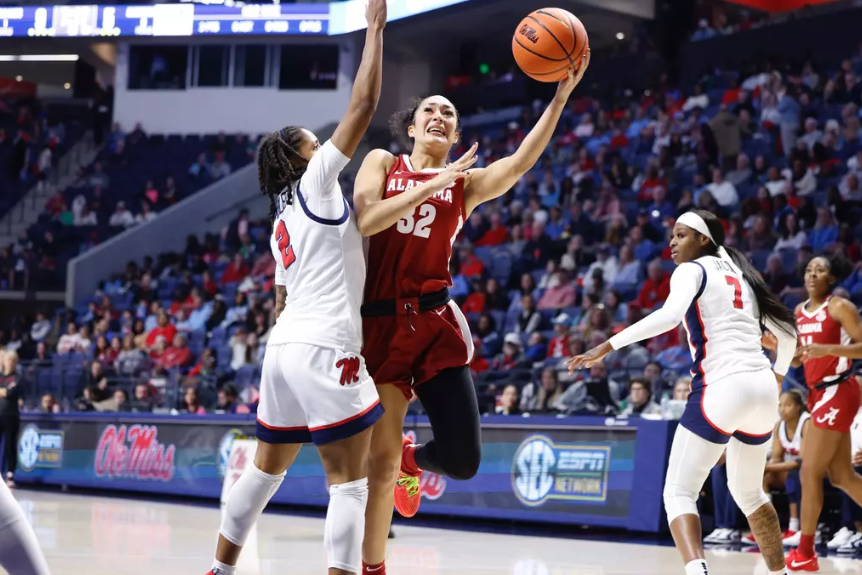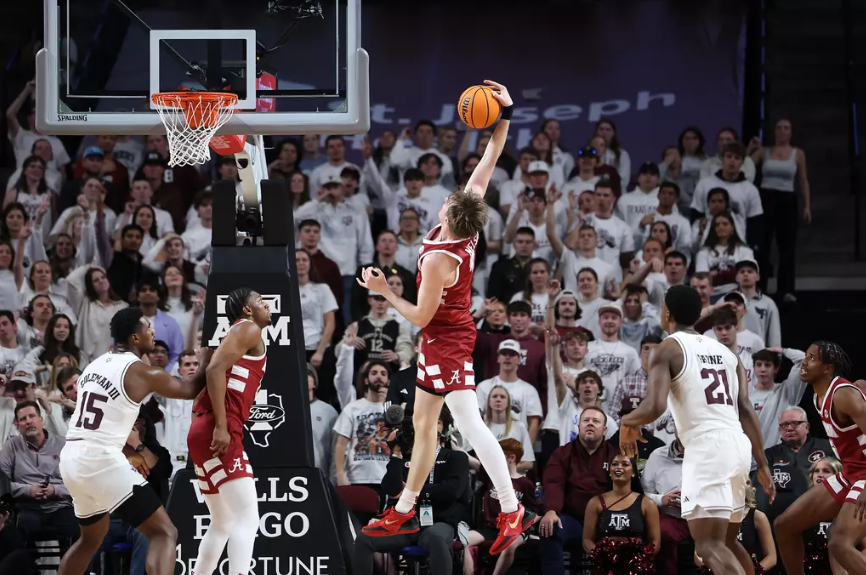While Alabama may have started the 2024 season with some dominant offensive performances, a final record of 9-4 with a bowl loss to Michigan suggests that a coaching change may be needed.
Offensive coordinator Nick Sheridan and head coach Kalen DeBoer began working together in the 2019 season at the University of Indiana.
From there, they split up when DeBoer took the head coaching job at Fresno State. Sheridan was hired before finishing his second season at Indiana, and he found a new position as tight ends coach at Washington, DeBoer’s next head coaching stop after Fresno.
The history and connection with DeBoer and his stint as offensive coordinator at Indiana made Sheridan a reasonable addition to the Alabama coaching staff. However, his new position became offensive coordinator and quarterbacks coach.
Quarterbacks coach makes sense, as he started his coaching career with the quarterbacks and played quarterback in college, although he only started four games in four years. But being an offensive coordinator at The University of Alabama is a big jump, considering he’d only ever held that title in Indiana, and for a short time.
Throughout the offseason, there were promising signs, including getting wide receiver Ryan Williams to recommit. In-season, the first four games were headlined by a 63-0 win against Western Kentucky, a late fourth-quarter takeover against South Florida, a victory on the road at Wisconsin, and most importantly, the big win against then-No. 2 Georgia.
Week 2 against South Florida was tough. It took a late surge for the Crimson Tide to finally pull away, but even a Saban-coached team the year before struggled against the Bulls.
The second half of Georgia was ugly, too, but that was expected considering the strength of the Bulldogs, and the 75-yard touchdown to regain the lead was all it took to make most fans happy.
However, there have been issues that cannot be overlooked.
Between the Georgia and Vanderbilt games, Sheridan almost completely abandoned the run after it was unsuccessful. What’s more, in Vanderbilt’s game before Alabama, the Commodores let Missouri running back Nate Noel rush for 199 yards, so they weren’t a proven run-stopping team.
Then came a close 27-25 win against the South Carolina Gamecocks. Again, the play-calling changed dramatically, and the offense became run-heavy.
In the week after came the Crimson Tide’s second defeat of the season, a 24-17 loss to Tennessee. Alabama could get nothing going as it struggled to execute in almost every way, but it provoked a reset for the team to get the season back on track.
The following week, Alabama defeated Missouri 34-0. After weeks of struggles, this was a great performance overall, particularly on offense.
The win was followed by a 42-13 win against LSU, based on a game plan that favored Milroe’s ability to run, and a 52-7 win against FCS team Mercer.
However, the idea of a win in Norman quickly faded as the Crimson Tide crumbled offensively.
Blame could be thrown all around, but the loss was mainly due to the lack of offensive production. Milroe struggled, but issues out of his control contributed to it.
In a position late in the game when Milroe had recorded nine rushes for negative two yards, six more quarterback runs were executed.
Oklahoma’s defense frequently showed blitz throughout the game, and in most cases, they were not bluffing. Oklahoma stuffed the run the majority of the time.
Although this was constant throughout the game, changes were never made. There seemed to be an adjustment issue, one that went back to Georgia.
The run-heavy offense with a few deep shots worked in the first half, and when it didn’t in the second half, the game came down to a 75-yard touchdown by Ryan Williams to regain a lost 33-15 lead at the beginning of the third quarter.
This had been an issue in almost every game, as there always seemed to be an offensive game plan prioritizing certain factors or players. When the game plan worked, all was well. But when it didn’t, there never appeared to be a backup plan, and it resulted in an ugly win like the South Carolina game or a loss like Oklahoma.
Alabama then finished the regular season with a 28-14 win against Auburn. The victory wasn’t too ugly, and the offensive performance was a bounce-back from the week before, mainly focusing on getting the ground game going this time.
However, it took a turn for the worse when Alabama lost to Michigan 19-13 in the ReliaQuest Bowl.
Aside from Milroe’s personal struggles and turnovers, Sheridan had his issues. With a quarterback unable to throw an accurate ball for the majority of the time, many passing plays were still called, giving Milroe his third most attempted passes in a game this season.
This continued throughout the game, as Sheridan again underutilized the run game. The running backs finished the game with only 12 carries, while Milroe recorded the most with 16.
While player performance and other factors can take some of the blame, Sheridan has not definitively proven himself as one who has what it takes to coordinate the offense for Alabama football.
Sheridan must prove that he has what it takes to run the offense efficiently. The offense needs to be able to adapt, whether it’s game-by-game or a halftime adjustment.
Issues revolving around play calling and consistent efforts to attempt something that hasn’t worked all game should not have been a consistent issue.
Over the offseason, he must contribute to recruiting and work on his offensive game planning and play calling. DeBoer will need to truly analyze and consider what Sheridan is doing here, what he brings to the table and what is best for the football program.
Whether the solution for Sheridan is more time, a different role, or simply a departure from the program, DeBoer needs to make changes sooner rather than later.







